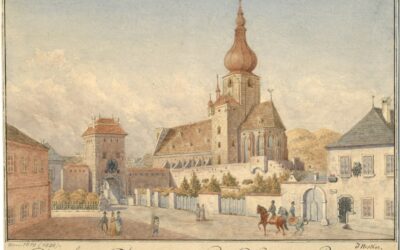Mozart Unveiled on Radio Vaticana:
A Landmark Broadcast
Experience the power of critical musicology as Luca Bianchini and Anna Trombetta present their groundbreaking insights on Mozart’s legacy on the prestigious Radio Vaticana.
Each episode unveils secrets and challenges the myths surrounding this celebrated composer.
Mozart: The Fall of the Gods
This book compiles the results of our studies on 18th-century music and Mozart, who has been revered for over two centuries as a deity. We dismantle the baseless cult of Mozart and strip away the clichés that falsely present him as a natural genius, revealing the contradictions in conventional biographies. In this work, divided into two parts, we identify and critically analyze several contradictory points in the vast Mozart bibliography. Each of the nearly 2,000 citations is meticulously sourced, allowing readers to verify the findings. This critical biography of Mozart emerges from these premises, addressing the numerous doubts raised by researchers.
"Mozart is not what history wants us to believe—sometimes, the truth is stranger than the myth."
Mozart: The Fall of the Gods
e esteemed musicologists Luca Bianchini and Anna Trombetta are bringing their provocative insights on Mozart to none other than Radio Vaticana, the Vatican’s highly revered station. Through a series of enlightening episodes of L’Arpeggio, Bianchini and Trombetta will delve into the myth surrounding Mozart, revealing intricate details from their groundbreaking book, Mozart: The Fall of the Gods. In a truly prestigious event, Radio Vaticana honors these scholars’ in-depth research and fearless questioning of Mozart’s legacy, underscoring the importance of evidence-based musicology in the modern world.
A Closer Look: The Episodes
First Episode
Introduction – The Birth of the Mozart Myth
Watch here: YouTube
Second Episode
The Quartets
Watch here: YouTube
Third Episode
The Duets and Quintets
Watch here: YouTube
Fourth Episode
Theater Director and The Marriage of Figaro
Watch here: YouTube
Fifth Episode
Divertimento K. 522
Watch here: YouTube
These first ten episodes explore key works of Mozart, presenting a rare, detailed critique that challenges the unexamined adulation Mozart often receives. From operas to quartets, this series promises to illuminate and unsettle long-held assumptions.
Special Feature: The Magic Flute
Explore more about Mozart’s most enigmatic work, The Magic Flute, through exclusive audio and video.
Follow this unparalleled broadcast to uncover a new perspective on Mozart, backed by historical scrutiny and the primary sources that few dare to reveal.
You May Also Like
Constanze Mozart in Baden bei Wien
The powerful resonance of the Pummerin bell in Vienna may have influenced Mozart’s compositions, particularly Sarastro’s arias in The Magic Flute.
The Echo of the Pummerin Bell
The powerful resonance of the Pummerin bell in Vienna may have influenced Mozart’s compositions, particularly Sarastro’s arias in The Magic Flute.
The Hidden Influence of Joseph Boulogne, Chevalier de Saint-George
Joseph Boulogne, known as the “Black Mozart”, was shaping the future of music while Mozart was still struggling for recognition in Paris. But history has buried the significant influence Saint-George had on Mozart’s career, erasing his pioneering style from the narrative.
The Forgotten Viennese Quartets
Attributing Offertorium K.34 to Mozart is not just misleading, it reflects the careless methods used by 19th-century scholars to inflate his legacy. Without an autograph or solid evidence, this work should not be considered part of his output.”
Mozart’s Bassoon Concerto: A Question of Authorship
The Bassoon Concerto K.191 raises more questions than it answers. Long thought to have been composed for a Munich bassoonist, new evidence suggests Mozart had no clear performer in mind. The concerto’s disjointed movements and other dubious compositions attributed to Mozart add further complexity to his legacy
The Uncertain Origins of Mozart’s Early String Quartets
Mozart’s so-called “Milanese Quartets” (K.155, 158, and 159) have long been subject to debate, primarily due to their ambiguous instrumentation and structural weaknesses. Were these works part of a larger series of orchestral divertimenti, hastily repurposed as string quartets? The answer remains elusive, reflecting the young composer’s struggles to find his own voice.







